Modeling and Control of Bi-Directional DC-DC Converter for Efficient Battery Charging and Discharging with PI Controller
Problem Definition
The current problem in traditional solar energy harnessing systems lies in the inefficiencies and limitations of the common setup, which includes components like DC-DC converters and charge controllers. The reliance on multiple stages of conversion not only leads to increased complexity and larger physical footprints but also results in higher costs for the overall system. These challenges make it difficult to design, implement, and maintain the solar energy system effectively. The inclusion of multiple conversion stages not only complicates the system architecture but also presents obstacles in system maintenance and troubleshooting. This has highlighted the pressing need for a more streamlined and efficient approach to solar energy harnessing, one that eliminates the limitations and pain points associated with the current setup.
Objective
The objective is to address the inefficiencies and limitations of traditional solar energy harnessing systems by designing a bidirectional DC-DC converter for Battery Energy Storage Systems. This converter aims to streamline the system architecture, reduce complexity, improve efficiency, and enhance overall system performance. By incorporating a Proportional-Integral (PI) controller, the system can regulate charging and discharging of batteries effectively. Through advanced control techniques and optimized switching mechanisms, the proposed system offers a comprehensive solution for efficient energy management in BESS, focusing on Lithium-ion batteries. The goal is to optimize energy utilization, improve performance, reduce component losses, and simplify system architecture to ensure sustainable and reliable operation.
Proposed Work
The proposed work aims to address the limitations of traditional solar energy harnessing systems by introducing a bidirectional DC-DC converter specifically designed for charging and discharging applications in Battery Energy Storage Systems (BESS). By streamlining the system architecture and minimizing the number of conversion stages, the converter reduces complexity, improves efficiency, and ultimately enhances the performance of the overall system. The utilization of a Proportional-Integral (PI) controller ensures precise regulation of the converter operation, allowing for optimal charging and discharging of the batteries. Through the strategic switching of MOSFETs and the incorporation of an ideal switch, the converter is able to maintain steady-state performance, facilitating seamless energy flow to and from the battery devices. With a focus on Lithium-ion batteries and their charging modes, the proposed system offers a comprehensive solution for efficient energy management in BESS.
By combining advanced control techniques with state-of-the-art technologies, the proposed system stands out as a novel approach to optimizing solar energy utilization and battery charging processes. Through the integration of bidirectional power flow capabilities, the converter not only enhances energy transfer efficiency but also ensures sustainable and reliable operation of the entire system. The emphasis on reducing component losses, improving performance, and simplifying system architecture underscores the innovative nature of the proposed work. By leveraging the benefits of PI control, MOSFET switching, and battery charging modes, the system is poised to deliver superior results in terms of energy management, cost-effectiveness, and overall system reliability. In conclusion, the proposed project serves as a promising step towards addressing the challenges associated with traditional solar energy systems and offers a streamlined, efficient solution for charging and discharging applications in BESS.
Application Area for Industry
This project can be used in a variety of industrial sectors such as renewable energy, power electronics, and electric vehicle manufacturing. By employing a bi-directional DC-DC converter and control circuits, the proposed solutions address the challenges faced by industries in managing solar energy systems more efficiently. The reduction of component losses and increased system performance not only streamlines the energy harnessing process but also minimizes the complexity and physical footprint of the system. This is particularly beneficial for industries looking to optimize energy utilization, reduce costs, and enhance system reliability. The use of a PI controller and the ability to regulate power flow bidirectionally contributes to more effective energy management and improved battery charging and discharging performance.
Overall, the project's proposed solutions offer a scalable and cost-effective way for various industries to enhance their renewable energy systems and operations.
Application Area for Academics
The proposed project focusing on a bi-directional DC-DC converter and control circuits in solar energy harnessing systems has the potential to greatly enrich academic research, education, and training in the field of renewable energy systems.
By incorporating advanced components and control strategies, the proposed system offers a more efficient and cost-effective solution compared to traditional setups. This project opens up avenues for exploring innovative research methods, simulations, and data analysis techniques within the realm of renewable energy systems. Researchers can leverage the bi-directional DC-DC converter and PI controller algorithms for conducting in-depth studies on system performance, energy efficiency, and optimization strategies.
This project also presents a valuable learning opportunity for students pursuing their MTech or PhD degrees in relevant fields.
The code and literature developed as part of this project can serve as a valuable resource for academic coursework, research projects, and thesis work. By engaging with the project's technology and research domain, students can gain practical insights into the design, simulation, and implementation of advanced power electronics systems for solar energy applications.
Looking towards the future, the project's scope extends to exploring further advancements in energy conversion technologies, control strategies, and system integration for renewable energy systems. This ongoing research can lead to the development of more efficient and sustainable solutions for harnessing solar power, ultimately contributing to the advancement of clean energy technologies.
Algorithms Used
The presented system in the project utilizes a bidirectional DC-DC converter and a Proportional-Integral (PI) controller to enhance performance and efficiency. The bidirectional DC-DC converter allows for efficient transfer of energy to and from battery devices by enabling bidirectional power flow. This helps in reducing component losses and improving overall system performance. The PI controller is essential for regulating the converter operation and ensuring optimal charging and discharging performance. The converter is designed to operate in steady state with two MOSFETs switched in a specific manner.
An ideal switch is used to connect or disconnect the main supply during simulation. The battery used in the model is a 24V Lithium-ion type with a rated capacity of 50 Ah. The discharging parameters are determined based on the nominal parameters of the battery, and charging is done in two modes: constant current and constant voltage. The combination of the bidirectional DC-DC converter and the PI controller plays a crucial role in achieving the project's objectives of enhancing accuracy and improving efficiency.
Keywords
solar energy harnessing, DC-DC converters, charge controllers, electricity flow management, battery charging, voltage regulation, energy utilization, conversion stages, system complexity, system architecture, system maintenance, troubleshooting, bi-directional DC-DC converter, control circuits, component losses reduction, optimal system performance, bidirectional power flow, Proportional-Integral controller, converter regulation, MOSFETs, steady state operation, ideal switch, Lithium-ion battery, 24V nominal voltage, 50Ah rated capacity, battery discharging, charging modes, constant current, constant voltage, renewable energy, energy integration, power electronics, battery management, energy storage optimization, converter design, control algorithms.
SEO Tags
PHD, MTech, research scholar, solar energy harnessing systems, DC-DC converters, charge controllers, electricity flow management, battery charging, voltage regulation, energy utilization, multiple conversion stages, system architecture complexity, bi-directional DC-DC converter, control circuits, component losses reduction, performance enhancement, bidirectional power flow, Proportional-Integral controller, MOSFETs, steady-state operation, Lithium-ion battery, charging modes, constant current, constant voltage, battery energy storage systems, energy efficiency, power electronics, renewable energy integration, battery management systems, energy storage technologies, control algorithms, energy storage optimization, power control
| Shipping Cost |
|
No reviews found!













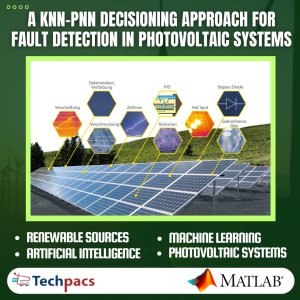
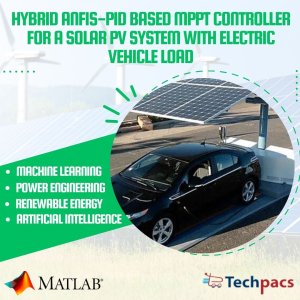
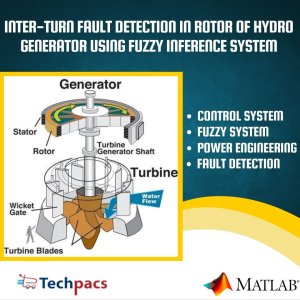
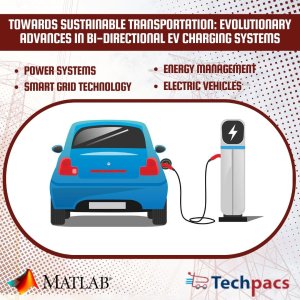
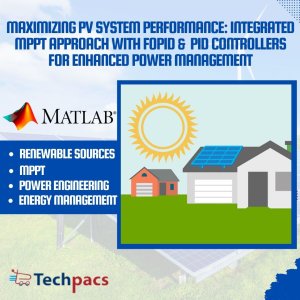































No comments found for this product. Be the first to comment!